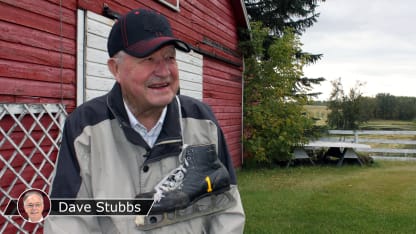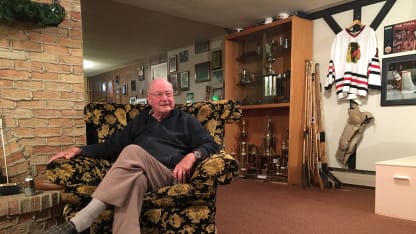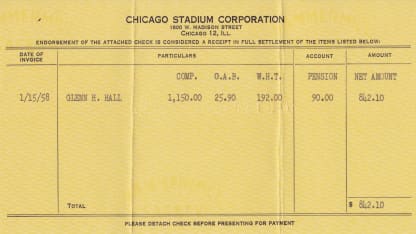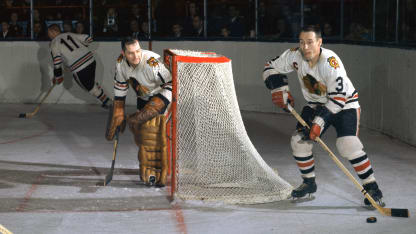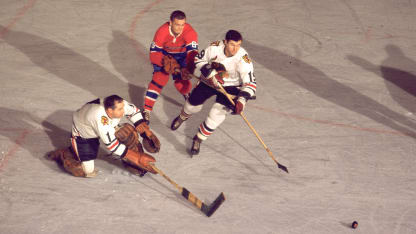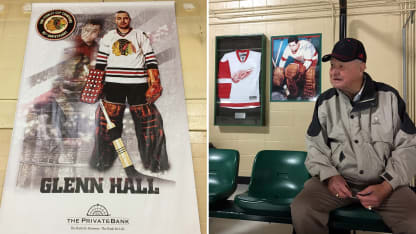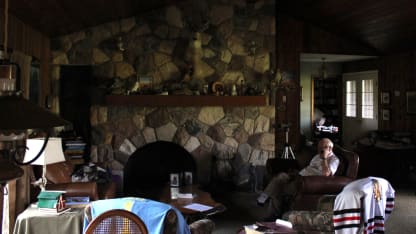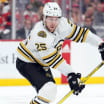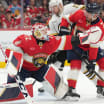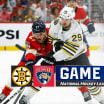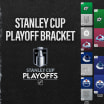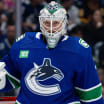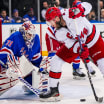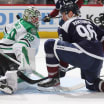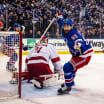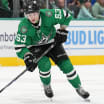A native of Humboldt, Saskatchewan, Hall played 906 regular-season and 115 Stanley Cup Playoff games from 1952-71. He won the Calder Trophy in 1955-56 as the NHL's best rookie, won the Vezina Trophy three times (1962-63, 1966-67, 1968-69) when it was awarded to the goaltender(s) on the team allowing the fewest regular-season goals, and won the Conn Smythe Trophy in 1968 as the most valuable player in the playoffs.
Hall was inducted into the Hockey Hall of Fame in 1975. His 502 consecutive complete games played (from Oct. 6, 1955 to Nov. 4, 1962, all without a mask), a record for an NHL goaltender, is a mark that seems out of reach forever. That total is 551 games including the playoffs, 1,026 by his own arithmetic when factoring in junior and minor-pro hockey.
A cross section of Hall's career is casually scattered around his sprawling home. There are photos in his basement, around the shuffleboard and billiards tables; books, pucks, sticks, jerseys, battered equipment and weathered documents, a collection dating from seven decades ago with the junior Humboldt Indians and including items from his NHL career with the Red Wings (1952-57), the Black Hawks (1957-67) and the expansion St. Louis Blues (1967-71).
